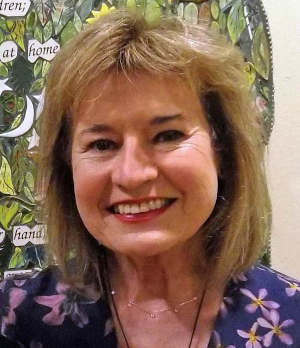Miri Koral is the Editor of The Song Remains.

Miri teaches Yiddish language, film and literature-in-translation at UCLA and is the Founding Director of the California Institute for Yiddish Culture and Language (CIYCL). She also translates Yiddish prose and poetry into English. In addition to two translated books, the biography by Shmuel Rozhanski, Jacob Dinezon: The Mother Among Our Classic Yiddish Writers, and In the Realm of Time – Selected Poetry of Chaim Keninger, her translations have been published in the journals PaknTreger, Hayden’s Ferry Review, and the Melbourne Chronicle, and in numerous online platforms such as Yiddishpoetry.org, JewishFiction.net, and Recovering Yiddish Los Angeles – UCLA Digital Anthology of Yiddish Literature. Her original poetry and prose in Yiddish has appeared in the journals Kheshbn, Tsukunft, Undzer Tsayt, and in the 2009 Step by Step: Anthology of Modern Yiddish Poetry. Under CIYCL’s banner she launched the first of its kind International Yiddish Poetry Translation Contest.
Miri brings her passion for Yiddish and poetry to The Song Remains. As a meticulous editor, she combines her attention to detail with empathy for the poets and deep appreciation for their beautiful language, ensuring high-fidelity translations that are true to their original meaning, imagery, and meter.
In Miri’s words:
From the first, I admired the late esteemed Sarah Moskovitz’s dedication to re-enlivening the words of Yiddish poets who perished in the Holocaust by translating them herself and helping to bring them to the eye of a modern public. From the time she began her work for the U.S. Holocaust Memorial Museum on the Oyneg Shabes collection of poetry secreted in the grounds of the Warsaw Ghetto, I endeavored to help publicize her efforts through presentations for the California Institute for Yiddish Culture and Language. And as soon as the poems she translated became the website PoetryinHell , I began using them as a resource for my Yiddish classes at UCLA, as well as for events commemorating the Holocaust. Those poems and Sarah’s translations have been a particularly poignant and intimate way to approach both the gross inhumanity the (mostly young) writers needed to confront, as well as the eternal indomitability of the human spirit that is called forth at such times.
So when Sarah and her son David asked me to continue the work she had so lovingly begun on The Song Remains, how could I say “no”? It is with honor and great humility that I take up the mantle of translating and editing the translated works of those whose lives were snuffed out by the Nazi murder machine and collected here. Though I’ve been actively involved in the field of Yiddish dissemination and education for many years, it is with great delight that in the process of doing this work I’m discovering writers whose poems had never crossed my path, or certainly not these particular poems.
I am awed by many of these works and can only hope I do them enough justice here. To quote Hillel Kempinski, a dear friend and long ago the archivist for the Bund at NYC’s Atran House (and likely quoting someone else!) Reading a work in translation is like kissing someone through a screen door. May the English reader at least receive the essence, soul, and lasting meaning of each of these special poems.